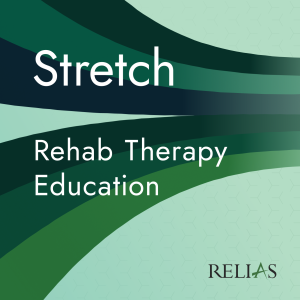
PT, PTA, OT, OTA, SLP – this podcast may help you meet your continuing education requirements. Access Relias Academy to review course certificate information.
Do you know how to match your treatment plan to the specific type of Parkinson’s disease the patient is experiencing? Today we talk with Mike Studer, a physical therapist who has focused on neurologic conditions throughout his career. He is an author of numerous chapters and articles, a frequently invited speaker at conferences, a Fellow of the American Physical Therapy Association, and a full-time clinician.
(02:37) What is a Phenotype?
(03:45) PD vs. Parkinsonism
(04:56) PD Phenotypes
(07:25) Phenotype: Tremor Dominant (TD)
(11:02) Phenotype: Postural Instability/Gait Difficulty (PIGD)
(15:16) Phenotype: Young Onset PD (YOPD) / Dyskinesia
(17:26) Medications Across Phenotypes
(21:26) Interventions for TD Phenotype
(24:08) Interventions for PIGD Phenotype
(27:50) Interventions for YOPD/Dyskinesia Phenotype
(28:39) Role of Therapeutic Exercise Across Phenotypes
(29:54) Case Example of TD Phenotype
(37:12) Case Example of PIGD Phenotype
(42:52) Impact of Walking Backwards
(49:57) Case Example of YOPD Phenotype
(55:13) Non-Motor Symptoms
(58:52) 14-Inch Visual Cues
(1:01:50) Conclusion
The content for this course was created by Mike Studer, PT, MHS, NCS, CEEAA, CWT, CSST, FAPTA
Here is how Relias can help you earn continuing education credits:
Access your Relias Library offered by your employer to see course certificate information and exam;
or
Access the continuing education library for clinicians at Relias Academy. Review the course certificate information, and if eligible, you can purchase the course to access the course exam and receive your certificate.
Learn more about Relias at www.relias.com.
Legal Disclaimer: The content of Stretch: Relias Rehab Therapy Education is provided only for educational and training purposes for healthcare professionals. The educational material provided in this podcast should not be used as medical advice to treat any medical condition in either yourself or others.
No comments yet. Be the first to say something!